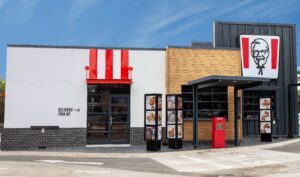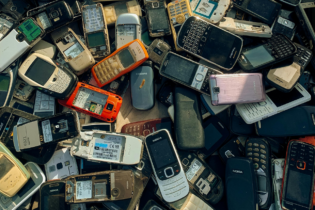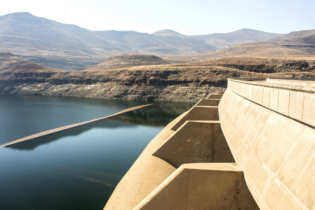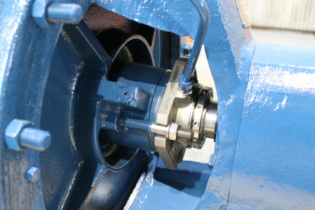KFC has made a commitment to implement more sustainable packaging options across all their outlets – however, KFC South Africa is taking their sustainability one step further, exploring a multi-layered approach to its sustainability efforts.
In 2019, KFC South Africa made their mark in sustainability history when they announced the removal of plastic straws in over 900 of their restaurants across South Africa. This meant the Quick Service Restaurant (QSR) outlet would be eliminating approximately 60 million plastic straws a year, equivalent to 70 tons. In 2022, KFC is being even bolder, by considering moves like converting the mash & gravy containers to paper which would mean a massive reduction in plastic from its restaurants. This move forms part of a global approach to reduce KFC’s environmental footprint – by ensuring that all of their plastic-based packaging items will be recoverable or reusable by 2025. Just two years shy of their goal, Chief Supply Chain Officer at KFC Africa, Siyabulela Ngcukana says they are looking into more than just getting rid of plastics. “Sustainability goes beyond just packaging. We are investigating several other avenues which will help us to effectively reduce our overall environmental impact and in fact are bolstering our full sustainability programme as a key business pillar across Africa.” Global meets local KFC’s global division developed a 360-degree sustainability roadmap – starting with partnering with major suppliers globally to identify sustainable processes and alternatives in value chains across each market. Ngcukana adds that KFC SA is following a three-pronged approach which entails; reducing environmental impact, finding ways to reuse their waste, and utilising more recycled materials in their packaging. However, from a utility perspective KFC’s packaging is required to not only be useable but must uphold customer satisfaction. “KFC remains committed to embarking on initiatives that uphold environmental standards, but we must also prioritise our customer base. Therefore, the big question for us is how we can reduce plastics without sacrificing the good customer experience,” says Ngcukana. A 360-degree approach to packaging “Paper has its own environmental impact, and we remain focused on ensuring that our consumer fiber-based packaging is sustainably sourced from responsible sources – be it recycled material, virgin material or a mix of both across our packaging portfolio. As a responsible corporate citizen, we continue to partner with packaging suppliers that source responsibly as well as partners that promote forestry practices that are environmentally sustainable.” KFC SA has already eliminated the use of single-use plastics where possible, by replacing their plastic straws and other disposable packaging with more sustainably sourced alternatives. For the plastic packaging still in their system, they are focused on moving the plastic to the most recyclable state possible. “There has been an increase in delivery across all industries due to the COVID-19 pandemic and this has put a lot of pressure and demand on packaging globally. As KFC, we know that our usage on packaging will increase and that’s why we are pushing to make our packaging as environmentally friendly as possible.”Exploring alternative energy sources
Ngcukana says KFC SA, together with some supply partners, are working on a project which will see certain ingredients being repurposed into fuel to power deliveries to their restaurants. This type of thinking ties directly into circular economy framework and forms a critical part of reducing, repurposing, and reusing materials in our value chain for the greater good of our environment. “There has been some investment in the country around these types of projects and we have harnessed the opportunity for this innovation – a project we plan to kick start this year.” “Through in-store and multi-layered environmental innovation in our restaurants, we are able to cut down on our waste production and reduce environmental impact.” KFC SA is also considering supplementing their energy requirement by making use of solar energy. Ngcukana indicates that currently KFC is in a trial phase with some stores in terms of solar power. “This will serve as sort of a feasibility study and help us determine whether converting to solar will help to supplement our energy requirements for our restaurants. We obviously won’t be able to fully substitute our energy requirements but making a significant substitution will be important.” Partnering with purpose “Being one of the biggest QSR’s in SA gives us a certain level of responsibility and in 2022, we are going beyond just being a sustainable business. We are looking to influence the entire QSR sector to becoming more environmentally conscious,”says Ngcukana. KFC SA is therefore planning to use their buying power to influence their network of supplier and distributors to go green – through the use of renewable energy in their factories and adopting sustainable practices. “We are really focussing on partnering with people who have the same vision as us when coming to sustainability.” Conclusion Ngcukana concludes that KFC takes pride in their responsibility to implement the necessary measures and practices that will ensure that they can reduce their environmental impact as much as possible. And they will therefore remain committed to embarking on initiatives that uphold environmental standards. “As KFC, we have a recipe for growth, and a recipe for good – and we strongly believe that being a good corporate citizen will ensure sustainable growth for our business. But, as I have mentioned previously, we as KFC are going beyond just using more sustainable packaging, it’s about overall impact and this year the market will see significant shifts from us in this space!” concludes Ngcukana.







